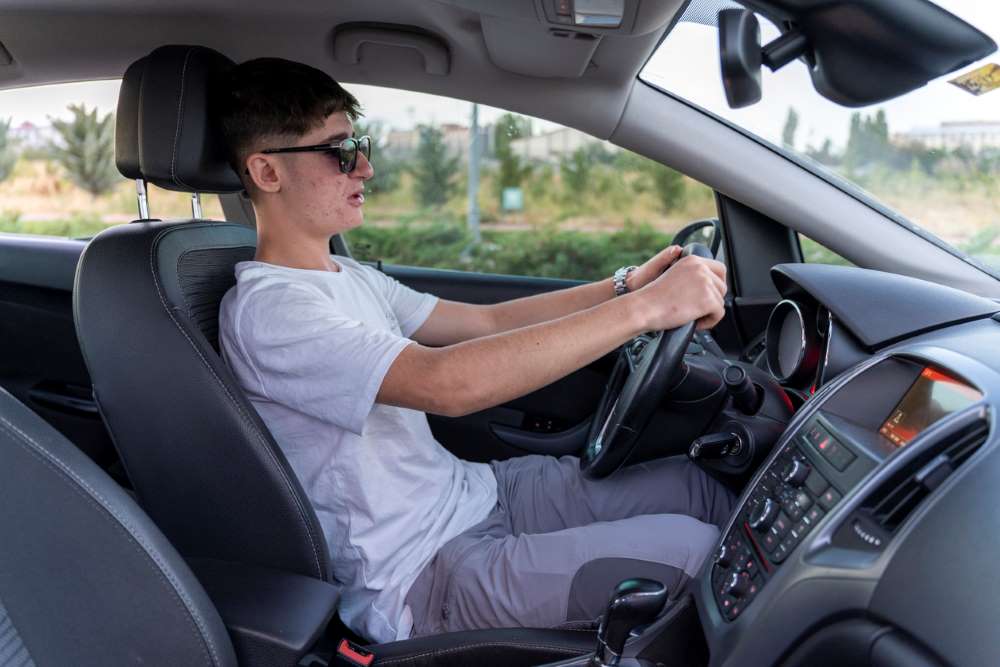
Getting a call from your teenager telling you that they have been injured in a car accident is one of every teen parent’s worst fears. However, given that teenagers are more likely to be hurt in a crash than drivers in other age groups, parents whose teenagers drive have a choice. They can either hope that nothing bad happens to their teen, or they can prepare.
The moments immediately after a collision can be terrifying and confusing for both teens and adults. Knowing and rehearsing what to do can help your teen remain calm, and it could save their life.
Teach Your Teen To Take These Steps After a Car Accident in Clearwater, FL
There is no way to fully prepare your teen for the stress, trauma, and chaos following a car accident. However, by discussing these steps and practicing them with your teen, you increase the likelihood that they will make the right moves after a wreck.
Get To a Safe Location, If Possible
Your teen’s first priority should be ensuring they get to a safe location out of the way of other traffic and hazards. If they can move their vehicle to the side of the road, they should do so. If their car is inoperable, they should still move somewhere nearby where they are not in danger of being struck by other traffic.
The only exception to this step is if your teen has no feeling in their arms or legs or has a tingling sensation. If this is the case, they should try to stay still and instead call 911 for help. These symptoms are indicative of a head or spine injury, and unnecessary movements can worsen any harm they have already suffered.
Assess the Situation and Call For Emergency Help
Next, your teen should consider whether they need to call for police and emergency medical help. In Clearwater, FL, you must report an accident that results in injury or death to any person, property damage of at least $500, or involves a hit-and-run driver. However, it’s best to call 911 after any traffic collision just to be safe.
It can be challenging for your teen to know whether they sustained an injury. Car wrecks typically produce adrenaline surges, which can mask pain and soreness. If your teen has any doubt about whether they should call local law enforcement, teach them to call out of an abundance of caution.
Contact You
Once your teen’s immediate safety and health have been addressed and the police have been notified, your teen should contact you. While it may be disconcerting not to be first on the list of tasks your teen should do after a crash, there is little you are able to do after a wreck until you arrive on the scene.
As a result, it is a much better practice for your teen to get to safety and notify first responders before informing you of the accident. When discussing this step, make sure your teen knows how to reach you in an emergency and who to contact if they cannot reach you right away.
Do Not Talk About the Accident At the Scene
Your teen will need to give certain information about themselves to others at the crash scene, including law enforcement. This information includes their name, driver’s license information, vehicle information, and insurance policy. Beyond this required information, teach your teen not to discuss more than the basic facts of the accident.
In the stress of the moment, your teen may want to talk about all aspects of the crash, including their own actions. Admitting to police or others on the scene that they may have been careless or not paying attention can create difficulties in obtaining compensation later on if it becomes necessary to do so.
Go To the Doctor or Hospital
If your teen did not need to be transported from the accident scene by ambulance, they should still make it a point to go to the emergency room or doctor’s office. Injuries, some of which can be potentially fatal, may not manifest detectable symptoms right after a crash. It can take hours or days before your child begins feeling the effects of a serious injury. By then, it can be too late.
The worst situation for your child would be for them to suffer unnecessary harm or complications from an injury that could have been easily diagnosed and treated. A few hours in the emergency room or a doctor’s appointment after school can prevent this tragic situation from happening.
Ensure that your teen keeps any follow-up appointments and follows their treatment plan as their doctors created it. If you notice new or worsening symptoms, do not hesitate to reach out and discuss these with your teen’s primary care physician.
This step applies also to mental health wounds and trauma. If you notice your teen has become sullen, withdrawn, reckless, or is otherwise not acting themselves after a crash, do not ignore it. Make an appointment with a therapist or counselor and have your child attend.
Feelings of depression, anxiety, or having nightmares are all common, but they do not need to control your teen’s life.
How To Support Your Teen After a Florida Car Accident
As a parent, you cannot keep your teen from all harm. However, you can be a resource and guide for your child before and after an accident. By going over the steps they should take following a crash, you empower them and give them confidence while also ensuring they do the things necessary to protect their health and well-being.
Once your child notifies you that they have been in a crash, you can encourage them and guide them through this list of steps. Most of all, you can be an emotional support for your child as they unpack and deal with the stress of this incident.



























